At the end of last year, I read two books – one nonfiction, one a memoir – that helped me organize some of goals and plans for this year via my One Little Word, whole. They’re both books about what it means for women to live life without a template to follow, and finding new stories to tell ourselves and each other about success and living a fulfilled life.
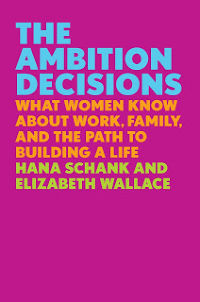
The Ambition Decisions by Hana Schank and Elizabeth Wallace
In The Ambition Decisions: What Women Know About Work, Family, and the Path to Building a Life, journalists Hana Schank and Elizabeth Wallace set out to explore what happened their Northwestern University sorority sisters since graduation in the early 1990s, and what lessons those stories could offer to other women at transition points related to career and family.
Over three years of interviews, Schank and Wallace found their classmates lives had followed similar patterns, and their stories could offer a body of knowledge for women when starting or changing careers, getting married, having kids, hitting midlife, and more. A central argument of the book is that women’s lives and opportunities have changed so drastically and so quickly, these decision points have become even more loaded and complicated:
“We don’t have a template to follow, a way to peek into the future to catch a glimpse of what leaving this job or marrying that person or even just choosing to be the person who unloads the dishwasher every evening might mean for us decades from now. As a result, we are often making what turn out to be important decisions blind, groping for a way forward, winging it, and hoping it all works out.”
Before I continue, I should note that the book is definitely speaking to a particular kind of female experience, a fact the authors note in their introduction. As an ambitious, white, middle class, college graduate, I’m the exact demographic of many of the women they interviewed and wrote about in this book, making the lessons especially relevant for me and many of the women in my close circles. I can’t say how it may read for women coming from different backgrounds, but I do think there’s something widely resonant about the idea that our lives and choices today are much, much different than those of our mothers and grandmothers.
Despite the book’s limitations in scope, I appreciated how The Ambition Decisions gave me some language to explain the experience I’m seeing many of the women I know go through right now. Smart, talented, ambitious friends with kids are stepping back to be caregivers, slowing their careers or putting them on hold until the grind of early childhood is over. Others are consciously choosing not to have kids to focus on their careers or travel or volunteering. None of those paths are wrong, but I also know many of them are struggling with their choice because, in some way, it feels like we were never supposed to have to make these compromises in the first place.
As a person in transition myself, hearing all of the stories in this book, seeing the different roads there are, and thinking on what a given choice might mean for the next life transition, was comforting and helpful. Modern life is complicated and can be a grind, but there’s a lot we can learn from each other.
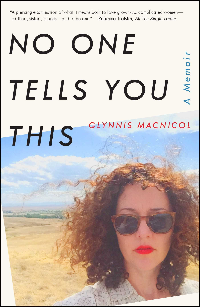
No One Tells You This by Glynnis MacNicol
Another book that comes at this idea from a more person angle is No One Tells You This by Glynnis MacNicol, a memoir about the idea that there is no accepted narrative for life as an uncoupled and childless woman, and what it means to live life writing your own story. The book opens on the eve of MacNicol’s 40th birthday, a year that has an outsized importance in our culture. “I was convinced that midnight was hanging over me like a guillotine,” MacNicol writes:
“I was certain that come the stroke of twelve my life would be cleaved in two, a before and an after: all that was good and interested about me, that made me a person worthy of attention, considered by the world to be full of potential, would be stripped away, and whatever remained would be thrust, unrecognizable, into the void that awaited.”
Of course that’s ridiculous, but it’s hard not to feel that way in the face of a world that doesn’t seem to have space for women, let alone older women who don’t fit the mold of wife or mother. The book goes on to chronicle her 40th year, a year filled with family crisis, international travel, adventures with dashing me, and a lot of personal reflection about “love, death, sex, friendship, and loneliness.”
I feel like I could say a million wonderful things about this book, which I ended up reading at the perfect time – right at the end of 2018 while I was starting to think hard about what my life looks like after widowhood, unemployment, and a career change threw me off the track of what I expected for my life.
MacNicol is honest and funny and smart, and her writing just moves with this energy I loved. There were so many sentences that felt like they were written just for me, articulating at thought I hadn’t yet been able to put in words for myself. I finished reading it late one night in bed, and almost immediately opened it back to the first page to start again because it had hit so close to home. I haven’t re-read it yet, but I’m sure I will before 2019 is over.
Again, this is a book that I don’t know will resonate with everyone. MacNicol acknowledges the privilege she has and what that means for even having the chance to ask these questions. I’m lucky to be in a space where I can, but I know that isn’t true for everyone.
So, to wrap this up before things get two awfully long… both of these books helped me think a lot about the stories we tell ourselves, the questions we need to ask about how to live a good life, and the compromises we don’t talk about being made. If any of those things seem important to you right now, I think these two books will have something to add.
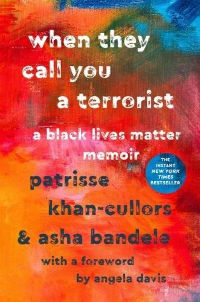 When They Call You a Terrorist by Patrisse Khan-Cullors and asha bandele
When They Call You a Terrorist by Patrisse Khan-Cullors and asha bandele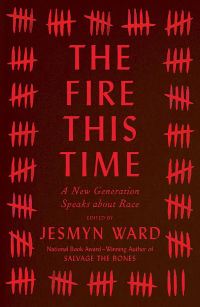 The Fire This Time, edited by Jesmyn Ward
The Fire This Time, edited by Jesmyn Ward
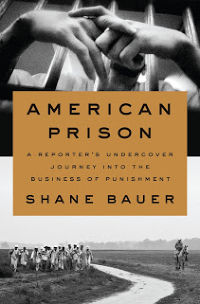 American Prison by Shane Bauer
American Prison by Shane Bauer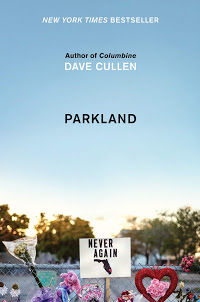 Parkland by Dave Cullen
Parkland by Dave Cullen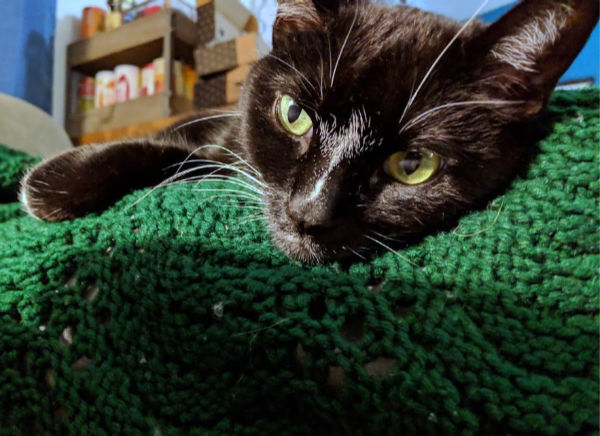
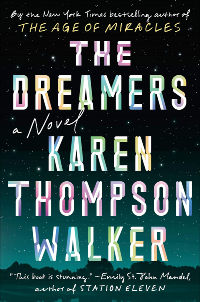 The Dreamers by Karen Thompson Walker
The Dreamers by Karen Thompson Walker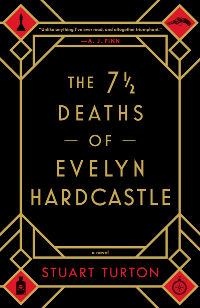 The 7 1⁄2 Lives of Evelyn Hardcastle by Stuart Turton
The 7 1⁄2 Lives of Evelyn Hardcastle by Stuart Turton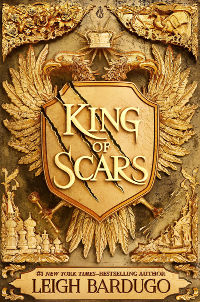 King of Scars by Leigh Bardugo
King of Scars by Leigh Bardugo
